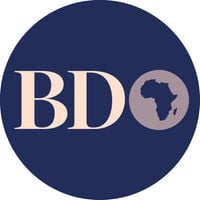
Central Bank of Kenya Governor Patrick Njoroge. FILE PHOTO | DIANA NGILA | NMG
Summary
- Loan repayment reliefs could be reintroduced should the country’s economic situation deteriorate amid a deadlier third wave of the Covid-19 pandemic, the Central Bank of Kenya (CBK) said.
- CBK Governor Patrick Njoroge Tuesday said that in the event such relief measures are reintroduced, it would require striking a middle ground that would guarantee benefits for both lenders and borrowers.
Loan repayment reliefs could be reintroduced should the country’s economic situation deteriorate amid a deadlier third wave of the Covid-19 pandemic, the Central Bank of Kenya (CBK) said.
CBK Governor Patrick Njoroge Tuesday said that in the event such relief measures are reintroduced, it would require striking a middle ground that would guarantee benefits for both lenders and borrowers.
Kenya last Friday announced new measures to curb the Covid-19 wave including a partial lockdown of Nairobi and four other counties, longer curfew hours, closure of bars and suspension of in-person schooling.
The restrictions have sparked fears of a new round of layoffs and job cuts, triggering loan defaults and a cash crunch in an economy recovering from a coronavirus-induced slump.
“If the things turn out that additional measures are needed because things have really worsened, then obviously the MPC (Monetary Policy Committee) and all the other policy makers stand ready to deal with that,” Dr Njoroge told a media briefing Tuesday.
“But you have to appreciate that it comes at a cost, and so you have to balance it against the cost of those measures. And the cost here potentially is to the (bank) depositors and we are conscious of that. It’s important to safeguard that, and that’s why, in a sense, there’s no such a thing as free lunch.”
The CBK last Tuesday announced that March 2 marked the end of the period for allowing banks to restructure loans for borrowers hit by the Covid-19 pandemic.
Policymakers unveiled the initiative to help distressed borrowers at the onset of the crisis in March last year, helping to partly cushion the economy from the pandemic’s impact.
Borrowers who still have outstanding restructured loans will have until June 3 to regularise them, paving the way for blacklisting of defaulters with credit reference bureaus (CRBs) from September.
The regulator said that the Sh569.2 billion or a third of the Sh1.7 billion loans that had been restructured at the height of the crisis would not enjoy the relaxed terms, including suspension of interest payments.
Dr Njoroge maintained yesterday that the default risk in the banking industry was “quite contained”.
The one-year period for the emergency loan restructuring measures had softened the blow on many borrowers who suffered sudden pay cuts and retrenchments as firms sought survival in a period of tumbling revenues.
Under the new measures, Nairobi and the counties of Kajiado, Machakos, Kiambu and Nakuru would be treated as one zone, and people would be barred from crossing over to other areas. Bars and churches within the zone were also ordered shut.
The new containment measures have seen thousands of workers suddenly rendered jobless again after bars were shut, restaurants ordered to only operate take-away services and transport into and out of the zoned area grounded.
Dr Njoroge, however, said the restrictive measures in the zoned “disease-infected” area — including lengthening of night curfew by two hours to start from 8pm as opposed to 10pm previously — will likely have “selective (economic) impact in terms of region and sectors” unlike last year.
Gross loans
The non-performing loans (NPL) ratio, as businesses and workers battle the impact of Covid-19 knocks on earnings, rose to about 14.5 per cent of the gross loans at the end of February from 14.1 per cent two months earlier, according to industry data shared with the regulator.
The MPC — the top decision making organ of the CBK— on Monday projected that NPLs were likely to peak at 16 per cent in June, slightly lower than 17 per cent forecast during the previous meeting two months earlier.


No comments:
Post a Comment